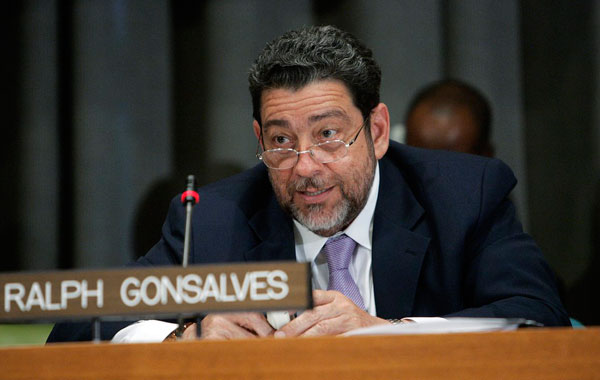While economically-pressed Caribbean countries are selling citizenship to mostly Middle Eastern, Asian, and Russian applicants as an easy revenue source, reports say abuse of the program is on the rise.
According to the Christian Science Monitor, the twin-island federation of St. Kitts and Nevis, of roughly 55,000 people, grants citizenship in exchange for either a contribution of US$250,000 or more to its Sugar Industry Diversification Foundation or the purchase of approved real estate worth a minimum of US$400,000.
“Selling passports is a way for the cash-strapped nation to raise money and has helped transform an economy once dependent on sugar cane,” said the paper on Friday. “But, as the program has grown, so have allegations of abuse.”
The Monitor noted that just last month the U.S. Treasury Department raised concerns that St. Kitts and Nevis had issued passports to three Iranian men who were using the documents to allegedly help Iranian banks launder millions of dollars.
“The negative attention has some calling for better regulations, or even an end to the program,” it said.
Nevertheless, the paper said money St. Kitts and Nevis has made from the program has spurred other countries – from Malta to Bulgaria – to start their own.
In the Caribbean, the Monitor said Antigua and Barbuda, Dominica, and Grenada have followed St. Kitts and Nevis’ lead, adding that others are considering similar programs.
Citing economic headwinds, such as lower tourism and high energy prices, the paper said St. Lucia Prime Minister Dr. Kenny Anthony announced last month that he was open to the idea.
“I think we cannot close our eyes [to selling citizenship], because it’s an option we may have to consider,” it quoted Anthony as saying.
The Monitor said countries that offer economic citizenship do not release the number of applicants or approval rates.
Nuri Katz, president of APEX Capital Group, a US consultancy, estimates that between 15,000 and 20,000 people apply annually for second passports.
Pushed by political turmoil, or seeking a passport that requires fewer travel visas, the Monitor said applicants come from around the world, especially Russia, the Middle East and Asia.
It said a passport from St. Kitts offers visa-free travel to more than 120 countries.
Dwyer Astaphan, a former St. Kitts and Nevis minister of national security who now works as a citizenship lawyer, estimates the program generates tens of millions of dollars for the country.
But Astaphan, according to the Monitor, conceded that “we don’t know where the money goes.”
Still, the investment “is an economic vitamin b-12 shot for a country our size,” he told the Monitor.
The Monitor said a surge of new countries offering such programs has raised concerns over abuses.
Earlier this week, the U.S. Treasury’s Financial Crimes Enforcement Network (FinCEN) office advised international financial institutions to more closely review dealings with clients using a St. Kitts and Nevis passport, stating that certain foreign individuals are abusing the Citizenship-by-Investment program to obtain passports for the purpose of engaging in illicit financial activity.
“Financial institutions can mitigate exposure to such risk through customer due diligence, including risk-based identity verification consistent with existing customer identification program requirements,” it said.
“FinCEN believes that illicit actors are abusing this program to acquire SKN (St. Kitts and Nevis) citizenship in order to mask their identity and geographic background for the purpose of evading U.S. or international sanctions or engaging in other financial crime,” it added.
For example, FinCEN said it believes that several Iranian nationals designated by the U.S. Office of Foreign Assets Control (OFAC) have obtained passports issued through the SKN Citizenship-by-Investment program.
“While many countries offer programs similar to the SKN Citizenship-by-Investment program, the SKN program is attractive to illicit actors because the program, as administered, maintains lax controls as to who may be granted citizenship,” FinCEN said.
While the SKN government has publicly pledged to improve these controls, FinCEN said it believes that “they remain ineffective.”
For example, in 2013, it said the SKN government announced that all Iranian nationals were suspended from participating in the SKN Citizenship-by-Investment program.
But, despite this public assurance, FinCEN said it believes that Iranian nationals continue to obtain passports issued through the program.
“As a result of these lax controls, illicit actors, including individuals intending to use the secondary citizenship to evade sanctions, can obtain an SKN passport with relative ease,” it said.
Prime Minister Dr. Denzil Douglas, however, told a press briefing: “We are evaluating what, if any changes should be made to our global program.”
At the same time, Astaphan told the Monitor that he feared such scandals “are hurting the country’s reputation and that eventually European countries will say, ‘we have to review these visa agreements.’
“And that will ruin it,” he said.



























